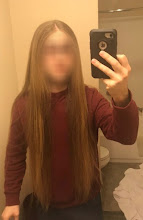
Sacagawea's home is the kind of place that draws people in on cold nights to sit around a kitchen table drinking warm tea and sharing personal stories.
This nineteen-year-old's parents separated when she was very young, so she and her sixteen-year-old sister Pocahontas live with their understanding and kind mother, Awesome Mom. Awesome Mom is one of the rare adults who teenagers feel as if they can open up to, a fact that has made her home a destination for young people from dysfunctional families.
Bisexual Boy, Guitarist Boy, Musical Girl, and many other friends of Awesome Mom's daughters, including Powell and I, have spent many evenings in that supportive place.
That is exactly what I did one night last week until one-thirty in the morning. Sacagawea is quickly becoming one of my closest friends, the type of person with whom I can talk easily and honestly.
In truth, the relationship we have now is more intimate, though in a different way, than the one we shared when we were dating. Last night we opened up to each other in a mutual confession that left both of us very surprised.
I told Sacagawea for the first time about what happened to me during my first two years of college, about my fight with a deep and long depression and the recurring temptations I had, last summer especially, to end my life.
During this time period I made a concerted effort to hide what was going on, to joke and be my same old self so no one could see me cracking. My concealment was effective, which is why Sacagawea was so shocked at how bad the situation had gotten. I even told her how I’d felt unwanted, by her and all the other people I’d just assumed didn’t care anymore.
The truth is that almost no one knew.
“Mine only lasted six months,” she replied when I revealed the awful duration (two years) of my nightmarish fall.
I’d been unaware that she’d been depressed, too, and asked what had touched it off. The answer she gave me couldn’t have been more unexpected; my friend’s half-year odyssey of dishonesty, loneliness, and decline, an ordeal that cost her nearly every friend she had, began with our breakup in February of 2007.
Back in December of 2006, when I was still trying to be straight, the two of us started a brief courtship that was distant, awkward, and essentially platonic. Long after the relationship was over, she confessed to me that she knew early on something wasn’t right, that the two of us weren’t as close as we ought to have been, and of course the main reason for that was my lack of real sexual attraction for her.
Dating her at all was a very selfish thing to do, something I realized on an instinctive level even at the time; she was a placeholder, the token girlfriend I could pull out to show the world my heterosexuality.
She could never have been anything more, and had the relationship somehow progressed it would have ended in horrible pain for both of us.
We separated in February on a very cordial note, but in the spring it came out that she’d been cheating on me since January with another boy.
When I found out through Powell, my already overpowering insecurities about my masculinity and sexuality, combined with severe depression, surged out of control.
I called Sacagawea to confront her not because I really cared about her feelings where I was concerned, but because I’d been publicly slighted. It was the humiliation, not the infidelity, that I couldn’t stand.
When I told her I knew she began sobbing and apologizing again and again. To me, it seemed like a spontaneous collapse brought on by guilt. What I didn’t know was that Sacagawea’s own drama had been proceeding for months.
News of her affair went public almost immediately after it began, and her friends’ reactions to her liaison with the disreputable young man caused her to start hiding her interactions with him. Eventually, she told me, she was constantly dissembling, lying about everything from her grades (which plummeted) to whether or not she was seeing the boy.
The actual relationship ended within several weeks, but the judgement of her peers, the secrecy she’d adopted, and the guilt she felt for my sake all persisted. My own brother Powell, once one of her closest intimates, joined the many who stopped talking to her. At that point it was her self-imposed isolation as much as her affair that was turning people away.
“It’s a cycle,” she said of the depression. “Once it starts it just gets worse.”
That is a truth I know all too well.
When I look back, I actually do remember hearing ominous stories about her during this period, about how she was skipping school and missing assignments and avoiding everyone. One day when she was here watching Pie, my father told me, he asked her if she was alright and she started crying.
At the time he was urging Powell to begin speaking to her again.
As all of this took place, though, I was reaching the height of my own depression, and anything outside of that pain was hard to focus on.
We both remember that phone call, both with misconceived eyes and both with ignorance of what the other was enduring. In the spring of 2007, as we held the plastic mouthpieces to our faces, we were two black storms meeting, two vortexes brushing against one another, and both clueless to that fact. We were at a simultaneous nadir.
“It’s funny how we’re the only people who might have understood what the other was going through, and neither of us knew it,” I said.
“I know,” she replied.
Learning all that was like reaching the conclusion of a mystery novel, so that with the truths uncovered the book’s plot cannot be reflected on in the same way. Every nuance takes on a new meaning, and given the context our conversation from two years ago now has entirely different implications.
I couldn’t believe how closely linked our two depressions actually were.
My homosexuality, of course, is what has allowed us to be friends again.
Though we decided that all was forgiven, it was really I alone who did any of the forgiving, for I alone had been wronged. As a straight man, I could never befriend the girl who’d betrayed my trust, not without losing my self-respect in the process. When I discovered I was gay, though, the extent of my own deception suddenly made her indiscretion seem paltry.
I was using her to bolster my own image, knowing all the while that she would almost certainly be hurt.
“In a way, I was cheating on you with every person I saw,” I said.
I came out to her this March, and I think it was that that allowed our friendship to honestly heal, and now to blossom. The knowledge that we both sinned against the other has allowed those transgressions to cancel each other out. I think that my coming out really alleviated her guilt for the first time, and for that I’m glad because she didn’t deserve the burden.

2 comments:
Thank God you both stayed in touch, have been honest with one another and are now friends on a different level - and such a fuliflling one. It sounds like one of those "meant to be" relationships - you both just had to find your way to the right place.
This may be a little cliche, but I think everything happens for a reason.
It's comforting...having someone understand you so well. I'm happy for you.(And your friend as well.)
Post a Comment